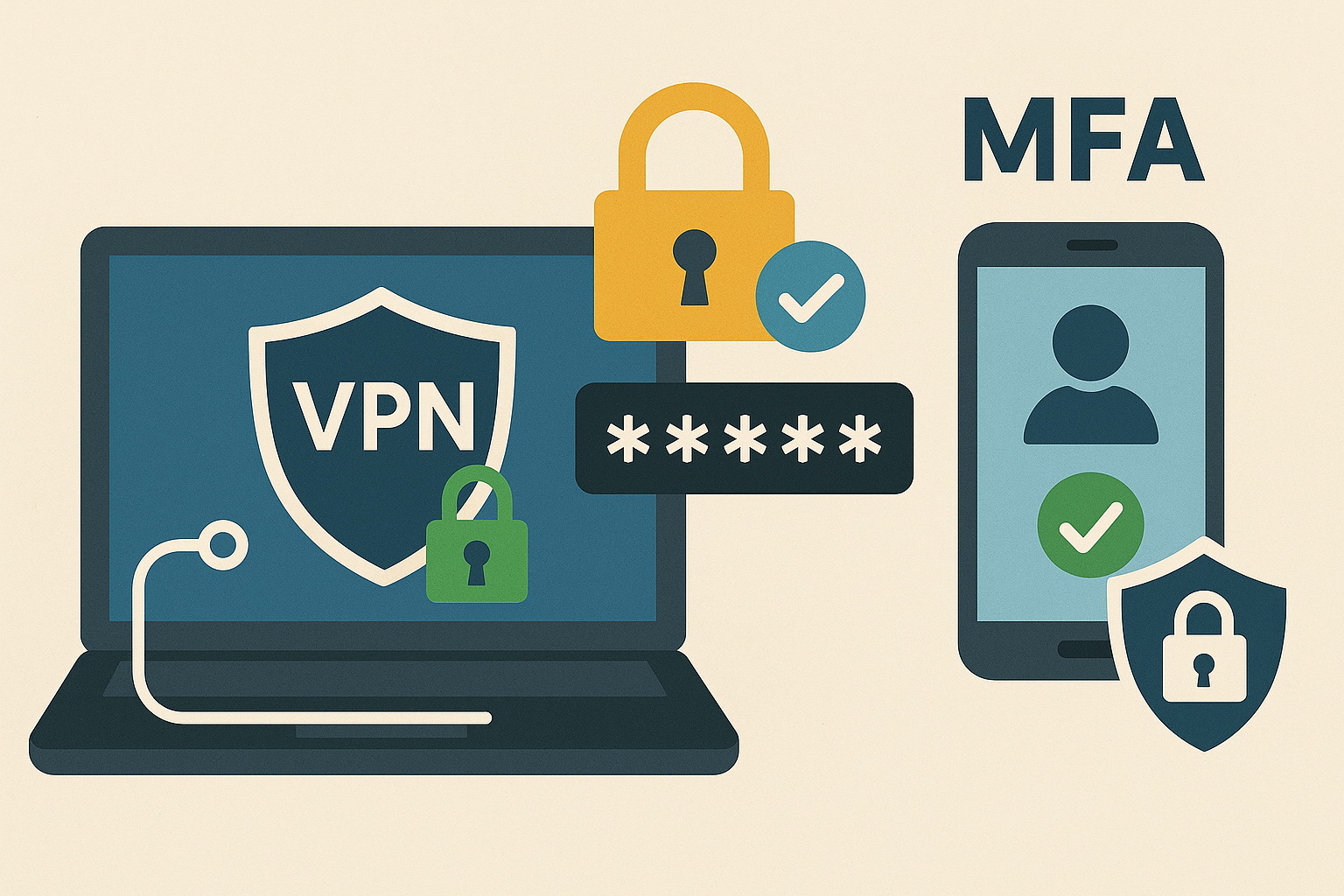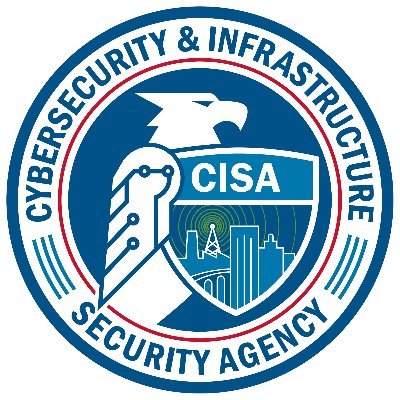
Securing Remote VPN Connections with MFA & Complex Passwords
Protecting your organization’s network in a remote world
Why VPN Security Matters
Remote work has made Virtual Private Networks (VPNs) essential for securely connecting employees
to corporate resources. However, VPN access is often a prime target for attackers seeking to
breach sensitive systems. Without strong authentication measures, compromised credentials can
easily lead to unauthorized access and data theft.
The Role of Complex Passwords
A strong password is your first line of defense. Simple or reused passwords are easy to crack
through brute force or credential stuffing attacks. Complex passwords significantly reduce the
likelihood of unauthorized access.
Best Practices for Complex Passwords:
- Use at least 12–16 characters
- Include uppercase, lowercase, numbers, and symbols
- Avoid personal information or common words
- Use a password manager to generate and store credentials securely
Why Multi-Factor Authentication (MFA) is Critical
Even the strongest password can be compromised. Multi-Factor Authentication (MFA) adds an
extra layer of security by requiring additional verification, such as a code sent to a mobile
device or biometric confirmation. This ensures that even if credentials are stolen, attackers
cannot easily gain access.
Benefits of MFA:
- Prevents unauthorized logins with stolen credentials
- Provides defense against phishing and brute-force attacks
- Meets compliance and cybersecurity standards
- Builds user trust and organizational resilience
Best Practices for VPN Security
- Enforce MFA for all VPN connections
- Require complex passwords and regular updates
- Monitor VPN logs for suspicious activity
- Limit VPN access to essential users and devices
- Keep VPN software and authentication systems updated
Summary
Strong password policies and mandatory MFA are essential for securing remote VPN connections.
Together, they significantly reduce the risk of unauthorized access and help maintain the
integrity of your organization’s network.

